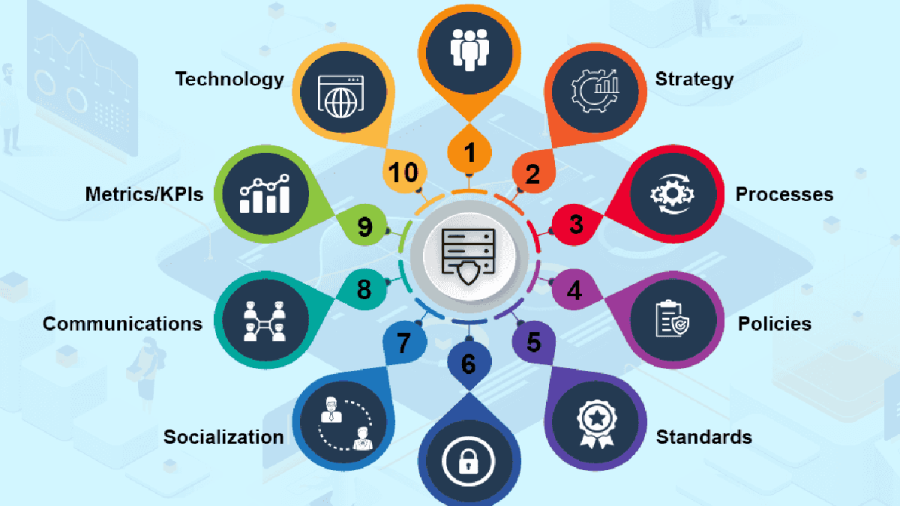In today’s data-driven world, organizations generate and handle vast amounts of data daily. However, the value of that data lies not in its quantity but in how it is managed and used. Effective data governance plays a crucial role in ensuring that data is accurate, secure, and accessible, ultimately improving decision-making across the organization. Here’s how strong data governance enhances the decision-making process:
- Ensures Data Accuracy and Consistency
Data governance establishes rules and standards for data management, ensuring that data across the organization is accurate, reliable, and consistent. When data is properly governed, decision-makers can trust the information they are using, leading to more informed and accurate decisions. Inconsistent or inaccurate data, on the other hand, can lead to flawed analysis and poor outcomes. - Enhances Data Security and Compliance
With growing concerns over data privacy and compliance regulations, such as GDPR and HIPAA, data governance helps organizations maintain the security of sensitive information. By implementing policies that control who can access, modify, and share data, businesses reduce the risk of data breaches. Secure and compliant data gives decision-makers peace of mind, allowing them to focus on strategic choices without worrying about regulatory issues. - Improves Data Accessibility and Usability
Data governance streamlines the organization and storage of data, making it easier for decision-makers to access and use the information they need. Well-organized and governed data can be quickly retrieved, analyzed, and acted upon, enabling faster and more efficient decision-making. Data silos and poor data management can slow down the decision process, making it difficult to stay competitive in fast-moving industries. - Facilitates Better Collaboration and Communication
When data governance is in place, teams across different departments have a unified approach to data. This encourages collaboration and ensures that everyone is working with the same reliable data. With clear data definitions and processes, teams can communicate effectively, share insights, and make decisions that are aligned with organizational goals. - Supports Strategic and Data-Driven Decisions
Strong data governance provides organizations with high-quality data that can be leveraged for strategic decision-making. Leaders can use data analytics to spot trends, identify opportunities, and predict future outcomes. By relying on well-governed, actionable data, organizations can make smarter, faster decisions that drive growth and innovation.
Conclusion
Data governance is essential for organizations that want to make better decisions based on reliable and secure data. By ensuring data accuracy, enhancing security, improving accessibility, and fostering collaboration, data governance empowers decision-makers to lead with confidence. In the long run, it strengthens an organization’s ability to make strategic, data-driven decisions that lead to success and competitive advantage.

